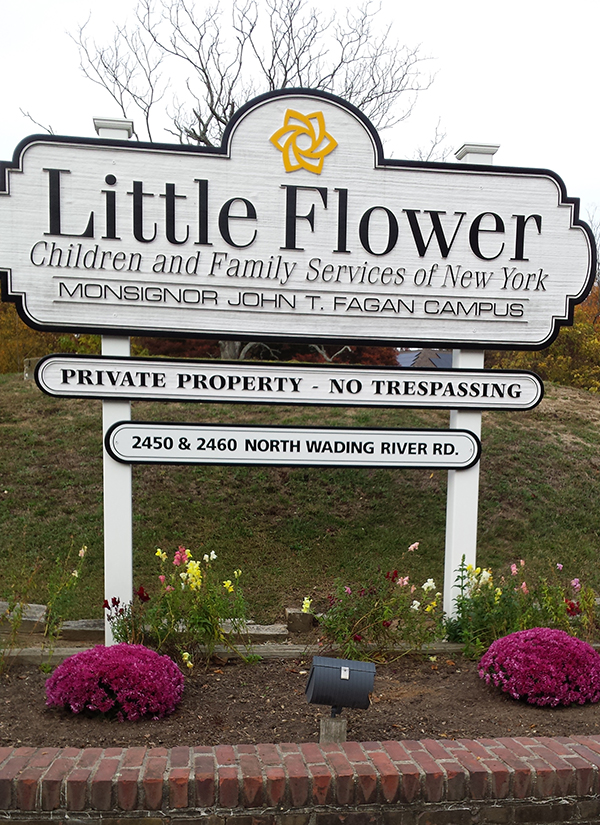
BAYSIDE — A nonprofit agency founded 95 years ago by Servant of God Msgr. Bernard Quinn to help children and families is divesting itself from all its residential programs for developmentally disabled adults in Queens and on Long Island, the agency has confirmed.
Little Flower Children and Family Services of New York, which operates nine residences for adults, confirmed that it is closing one site — in Wading River, Long Island — and transferring the other eight sites, including all of its Queens locations, to the jurisdiction of another nonprofit agency that serves developmentally disabled adults.
The Queens sites are located in Bayside, Forest Hills, Jamaica, and Laurelton. In addition to the Wading River facility, another Long Island home is located in Valley Stream. A total of 98 employees work at the nine sites, including 28 at Wading River.
According to the New York State Department of Labor, which was informed by Little Flower of the decision on June 10, the nonprofit cited economic factors as the reason.
Little Flower is headquartered in Wading River, where Msgr. Quinn opened an orphanage in 1928.
The Wading River residential site will close on or before Sept. 9. The home currently has four residents, officials said. Because of the need to staff the home 24 hours a day, the facility has 28 workers.
In a statement, Little Flower officials said the decision to close one home and divest itself of the others was a difficult but necessary one.
“Little Flower Children and Family Services, which has served the community for 95 years, recognizes the need to refocus on our core mission to maintain the array of child and family services we provide in a changing world,” the statement read.
The agency’s three-year strategic plan includes expanding its mental health services, officials explained.
Little Flower officials pledged to “support all individuals we have proudly served and work closely with our dedicated staff during this transition.”
Little Flower serves approximately 2,000 people a year and provides a wide variety of services including adoption, foster care, mental health programs, and overall health care.
The agency was born in 1928 when Msgr. Quinn (1888-1940), the founder of St. Peter Claver Church, a primarily African American parish in Bedford-Stuyvesant, founded an orphanage in Wading River for African American children. The orphanage soon expanded to include a summer camp for city kids.
The orphanage was burned to the ground twice by the Ku Klux Klan. Each time, Msgr. Quinn had it rebuilt.
In 1930, the orphanage was rededicated and given the name Little Flower in tribute to St. Thérèse of Lisieux, the French saint who is often referred to as the “Little Flower of Jesus.” Msgr. Quinn came to admire her when he served as a U.S. Army chaplain in France during World War I.
Over the ensuing decades, Little Flower Children expanded its mission to provide foster homes and permanent homes for children as well as programs for adults.
In an interview with The Tablet in 2021, Corinne Hammons, president and CEO of Little Flower, called Msgr. Quinn “a visionary who was ahead of his time.”
Bishop Emeritus Nicholas DiMarzio opened a cause for canonization for Msgr. Quinn in 2019, a move that gave him the title Servant of God.
